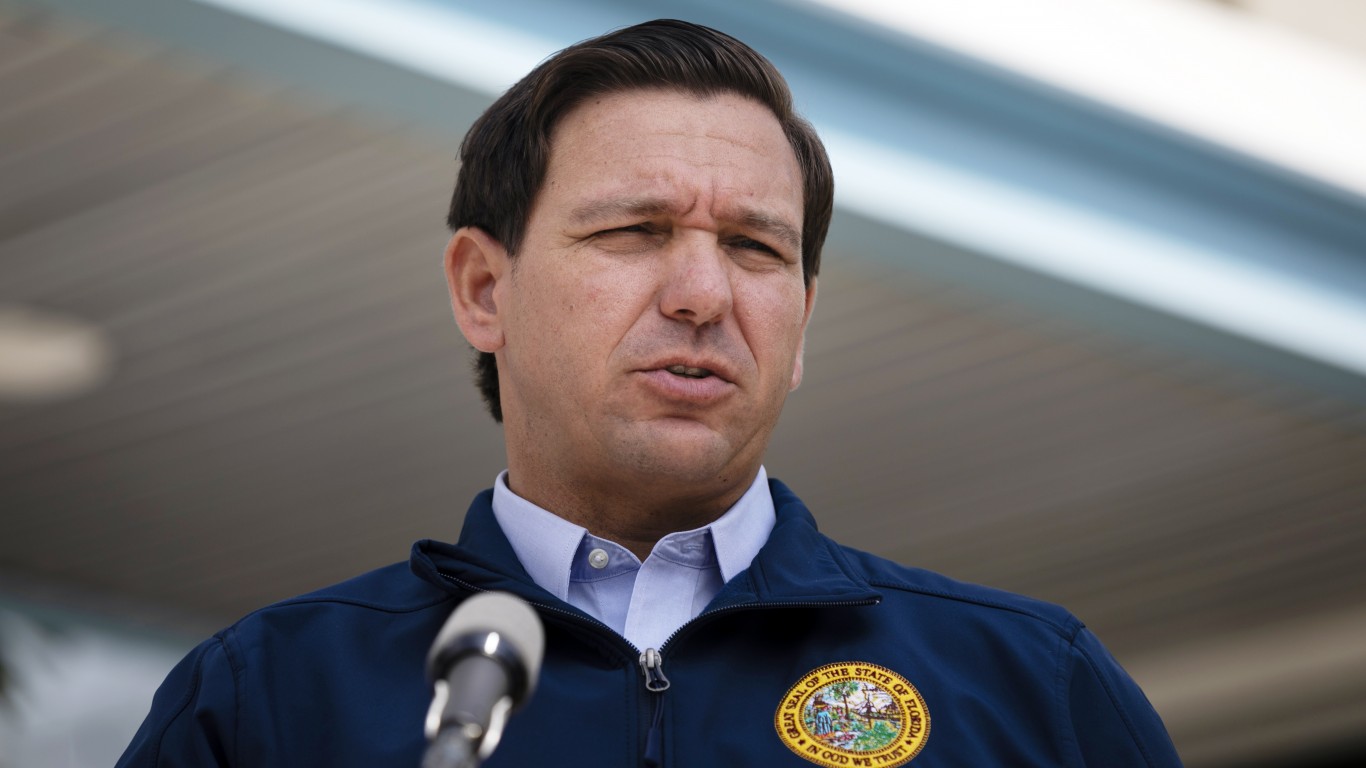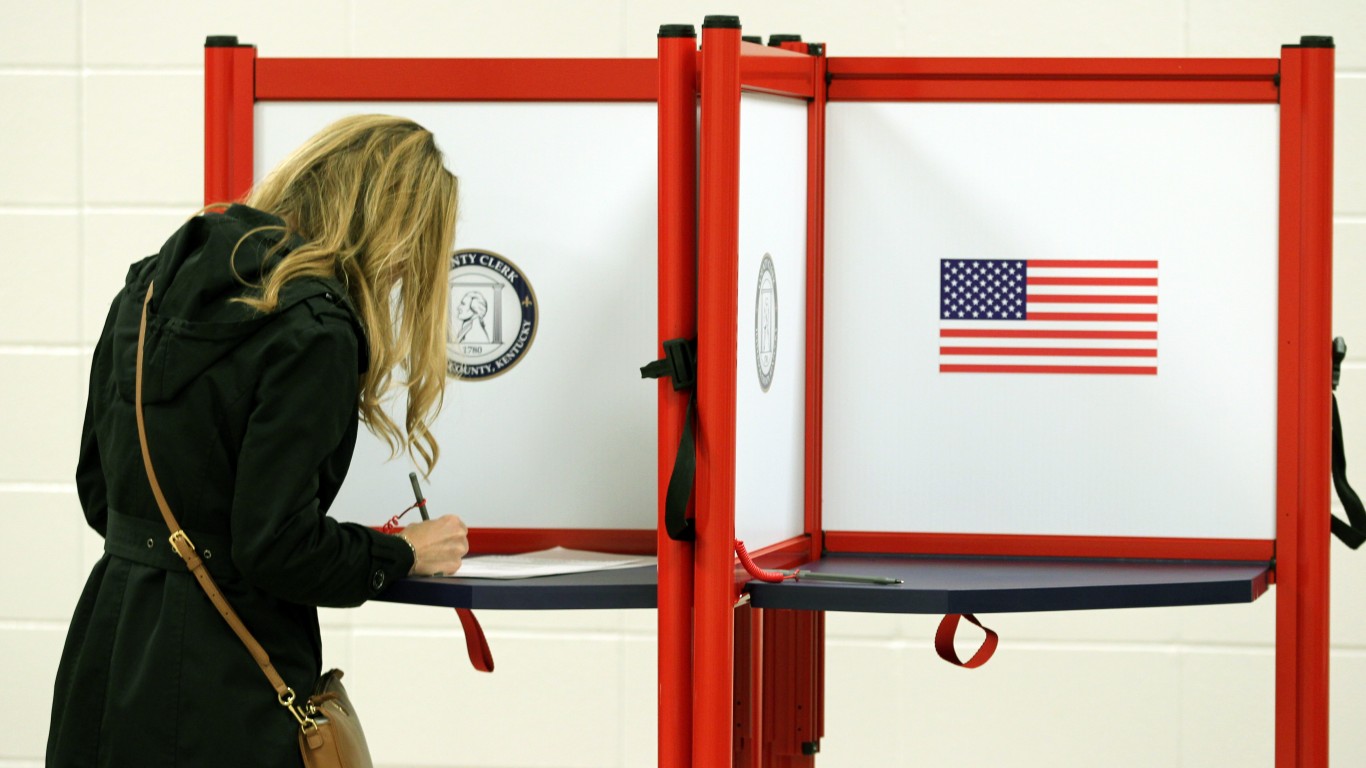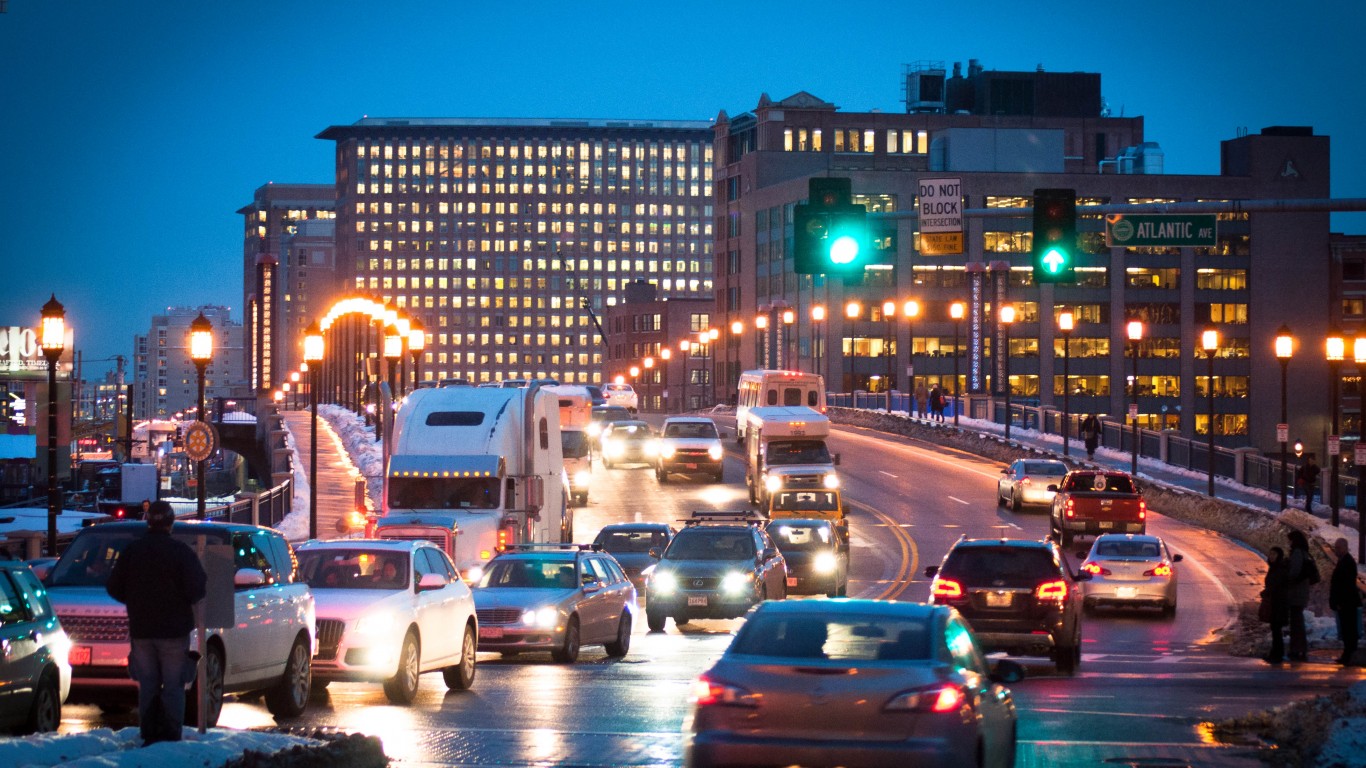
Traffic congestion is a real quality of life concern. It means time wasted for drivers and passengers, clogged streets and roads in neighborhoods and cities, missed meetings and flights, and a decline in air quality.
To identify the 25 U.S. Cities losing the most time to traffic congestion, 24/7 Wall St. reviewed the 2020 INRIX Global Traffic Scorecard. INRIX, which provides location-based data and analytics, ranked cities based on GPS data that evaluated the additional time spent commuting due to traffic congestion throughout 2020.
Perhaps not surprisingly, New York City tops our list, with an average 100 hours lost to traffic per driver in 2020. That’s four whole days, when people could have been doing something more productive than simply sitting in the car, on their way to work, shopping, trying to catch a flight from LaGuardia Airport or get out of the Lincoln Tunnel.
The economic costs are enormous: an average of $1,486 per driver, for a total of $7.7 billion. The former figure is more than the per capita gross domestic product of many countries. (Considering more than congestion, this is the worst city to drive in every state.)
Other cities in the East fare poorly as well. Drivers in Philadelphia lost an average 94 hours in 2020, while those in Boston lost 48. Perhaps surprisingly, drivers lost only 45 hours in Los Angeles, a city synonymous with freeways and driving everywhere.
Traffic congestion is even a problem in small cities generally regarded as having a good quality of life, such as Portland, Maine. There’s trouble in paradise too: Drivers in Kaneohe, Hawaii, lost an average 29 hours. Of course, this is not just a U.S. problem. Here are the world’s worst cities for traffic.
Click here to see U.S. cities losing the most time to traffic congestion

25. Kaneohe, HI
> Avg. hours lost to traffic per driver, 2020: 29 hours
> Cost of traffic per driver: $430
> Total traffic cost by city: $6 million
[in-text-ad]
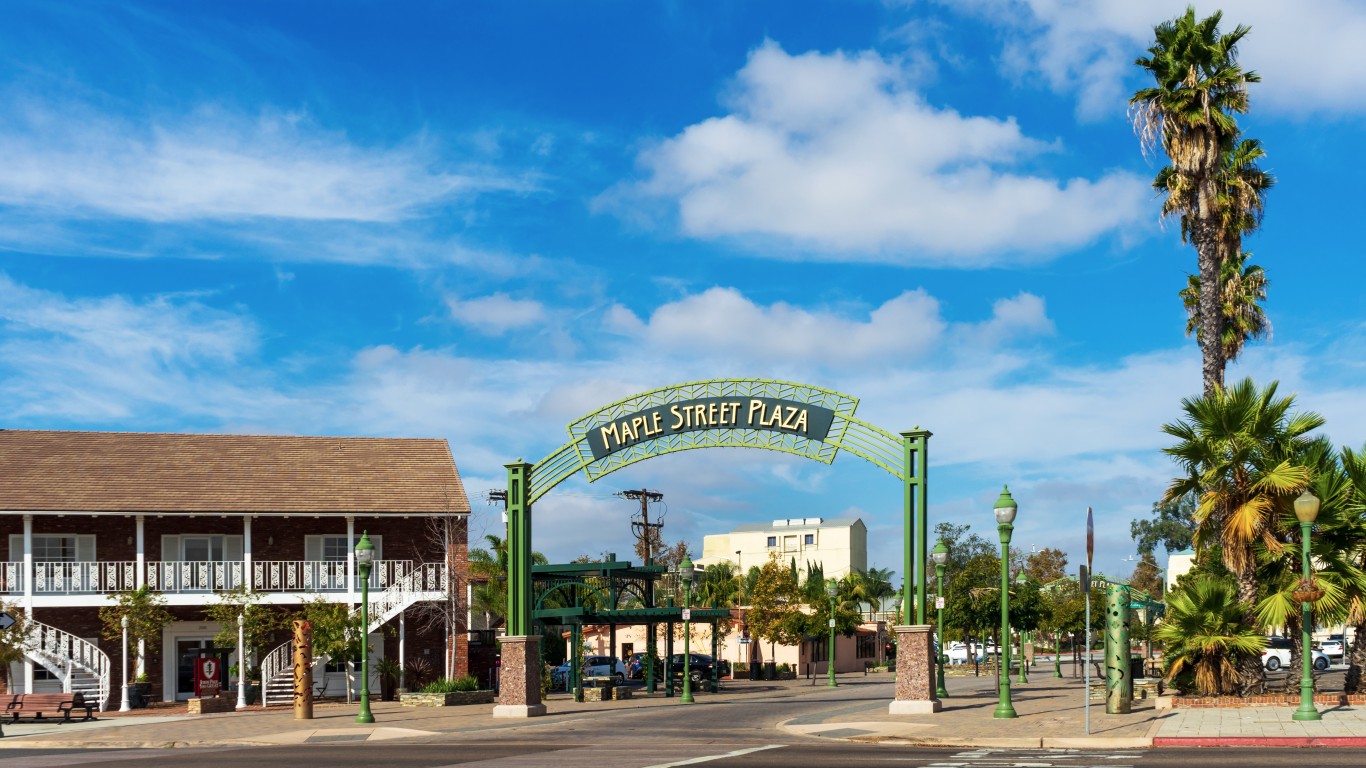
24. Escondido, CA
> Avg. hours lost to traffic per driver, 2020: 26 hours
> Cost of traffic per driver: $379
> Total traffic cost by city: $25 million

23. Portland, ME
> Avg. hours lost to traffic per driver, 2020: 23 hours
> Cost of traffic per driver: $343
> Total traffic cost by city: $90 million
22. Atlanta, GA
> Avg. hours lost to traffic per driver, 2020: 20 hours
> Cost of traffic per driver: $300
> Total traffic cost by city: $750 million
[in-text-ad-2]
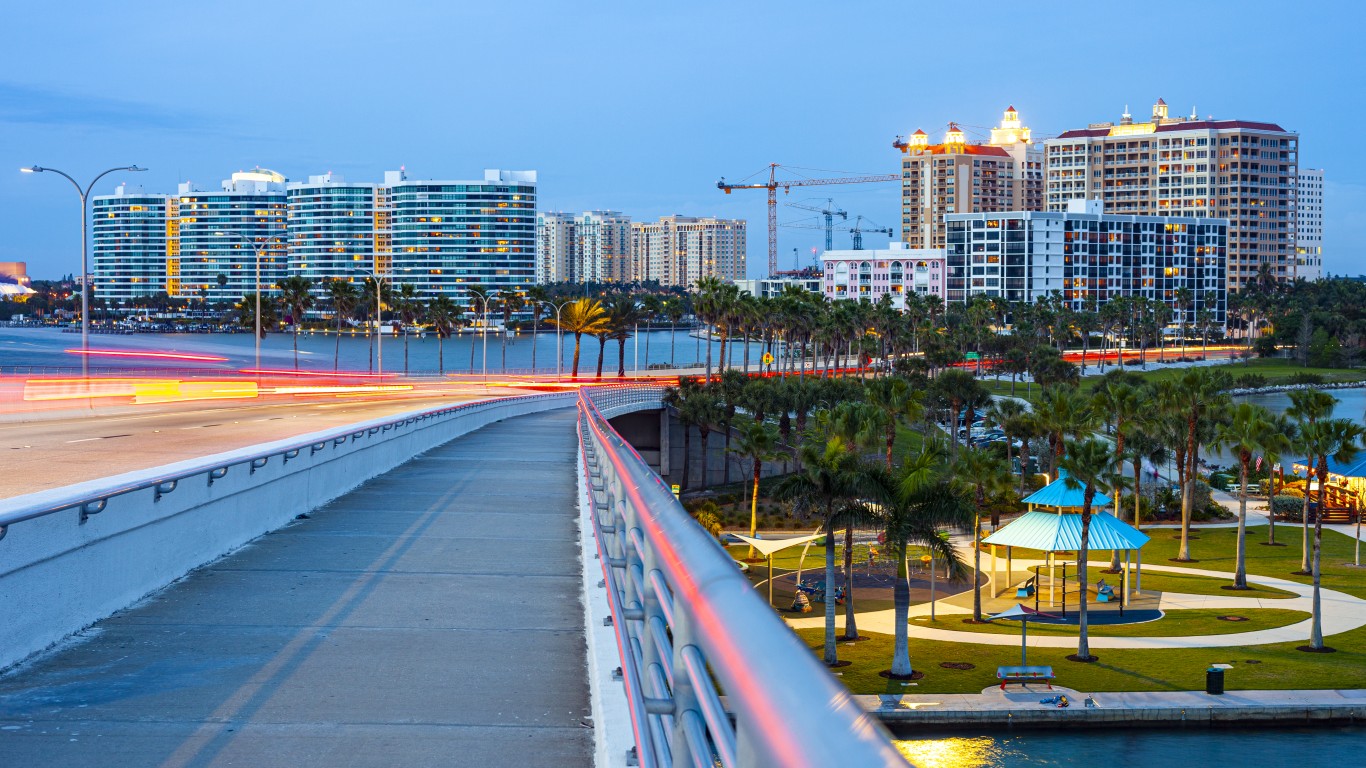
21. Sarasota, FL
> Avg. hours lost to traffic per driver, 2020: 29 hours
> Cost of traffic per driver: $428
> Total traffic cost by city: $100 million
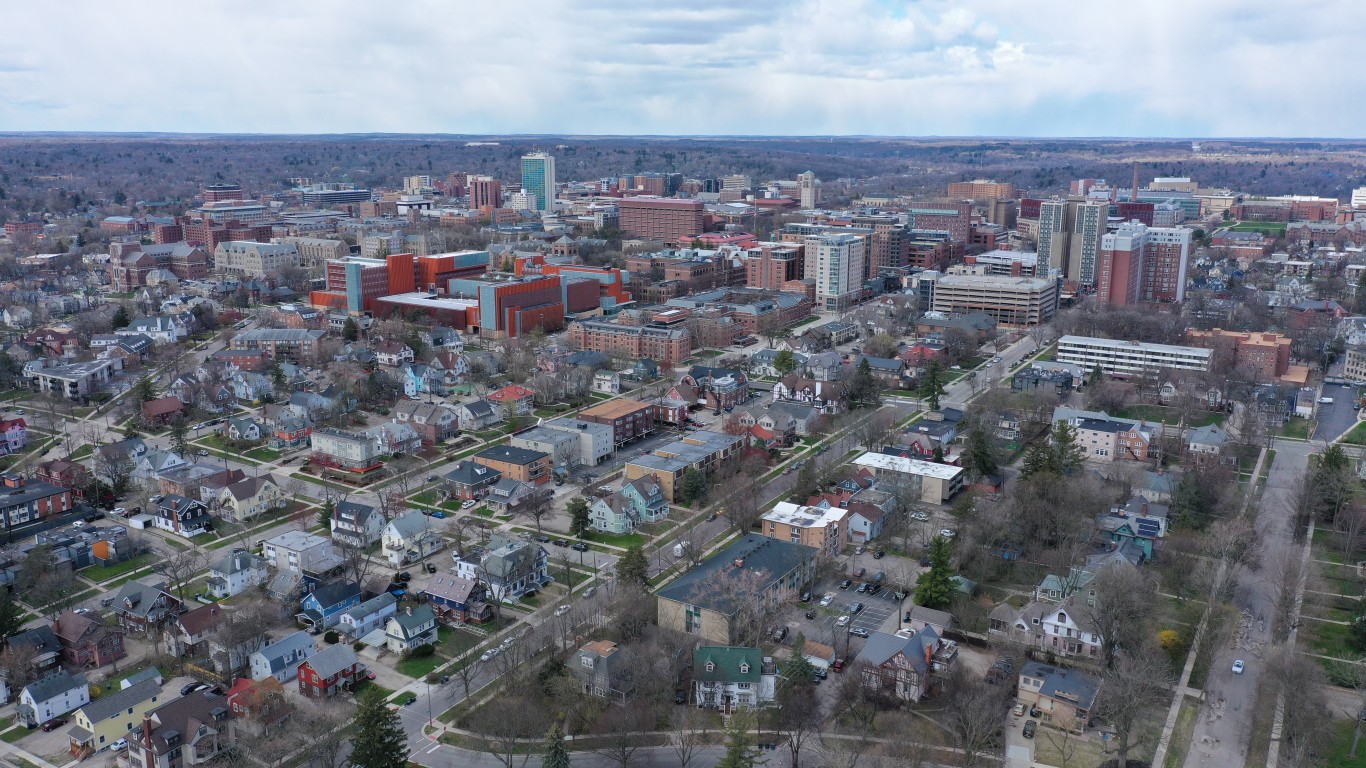
20. Ann Arbor, MI
> Avg. hours lost to traffic per driver, 2020: 25 hours
> Cost of traffic per driver: $368
> Total traffic cost by city: $50 million
[in-text-ad]
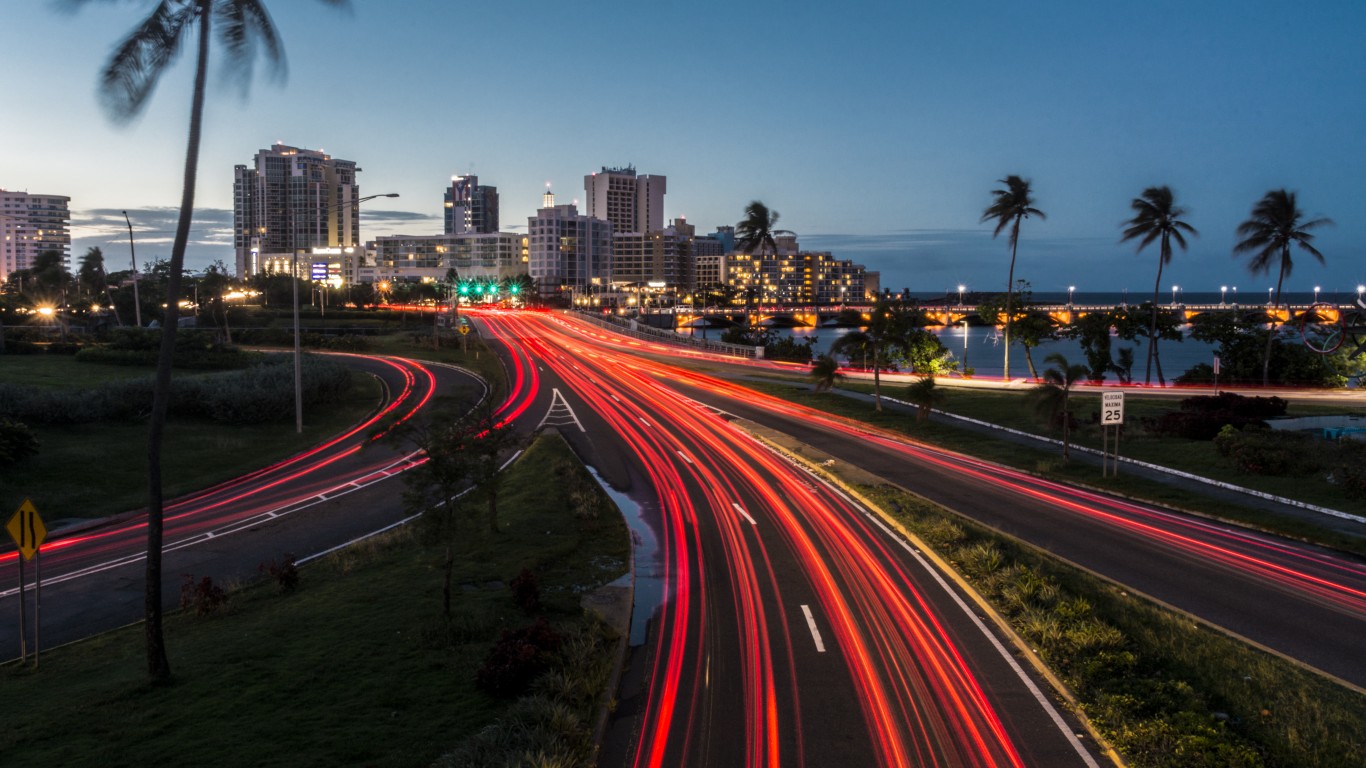
19. San Juan, PR
> Avg. hours lost to traffic per driver, 2020: 22 hours
> Cost of traffic per driver: $329
> Total traffic cost by city: $200 million
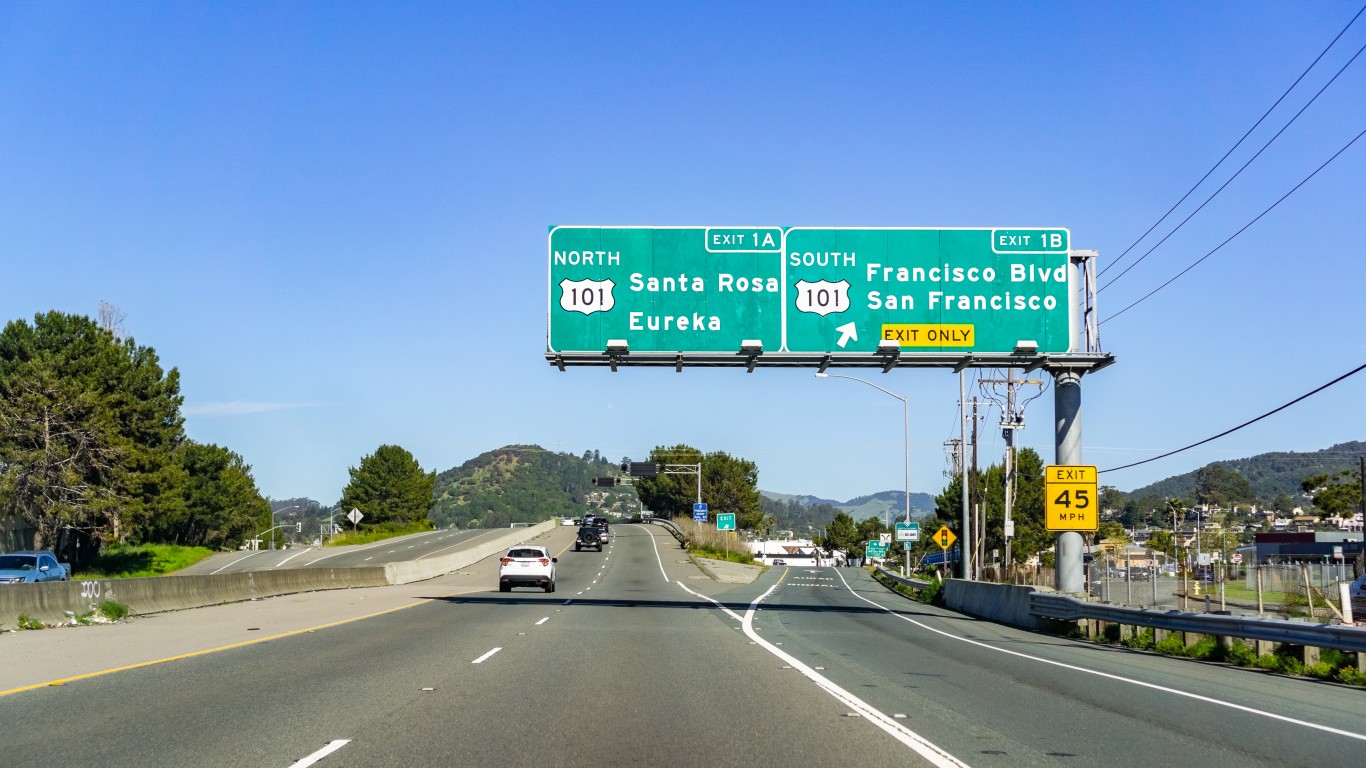
18. Santa Rosa, CA
> Avg. hours lost to traffic per driver, 2020: 26 hours
> Cost of traffic per driver: $384
> Total traffic cost by city: $100 million

17. Providence, RI
> Avg. hours lost to traffic per driver, 2020: 24 hours
> Cost of traffic per driver: $358
> Total traffic cost by city: $250 million
[in-text-ad-2]
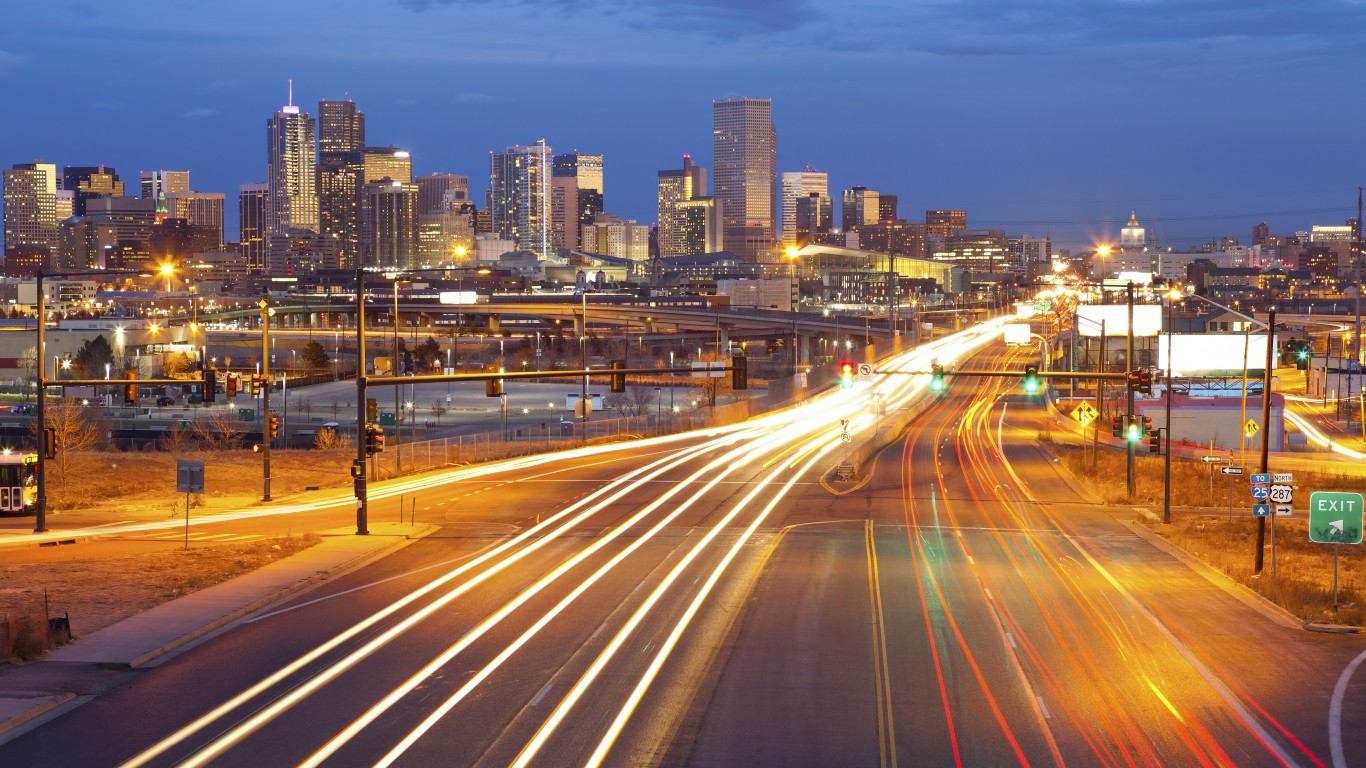
16. Denver, CO
> Avg. hours lost to traffic per driver, 2020: 24 hours
> Cost of traffic per driver: $359
> Total traffic cost by city: $450 million
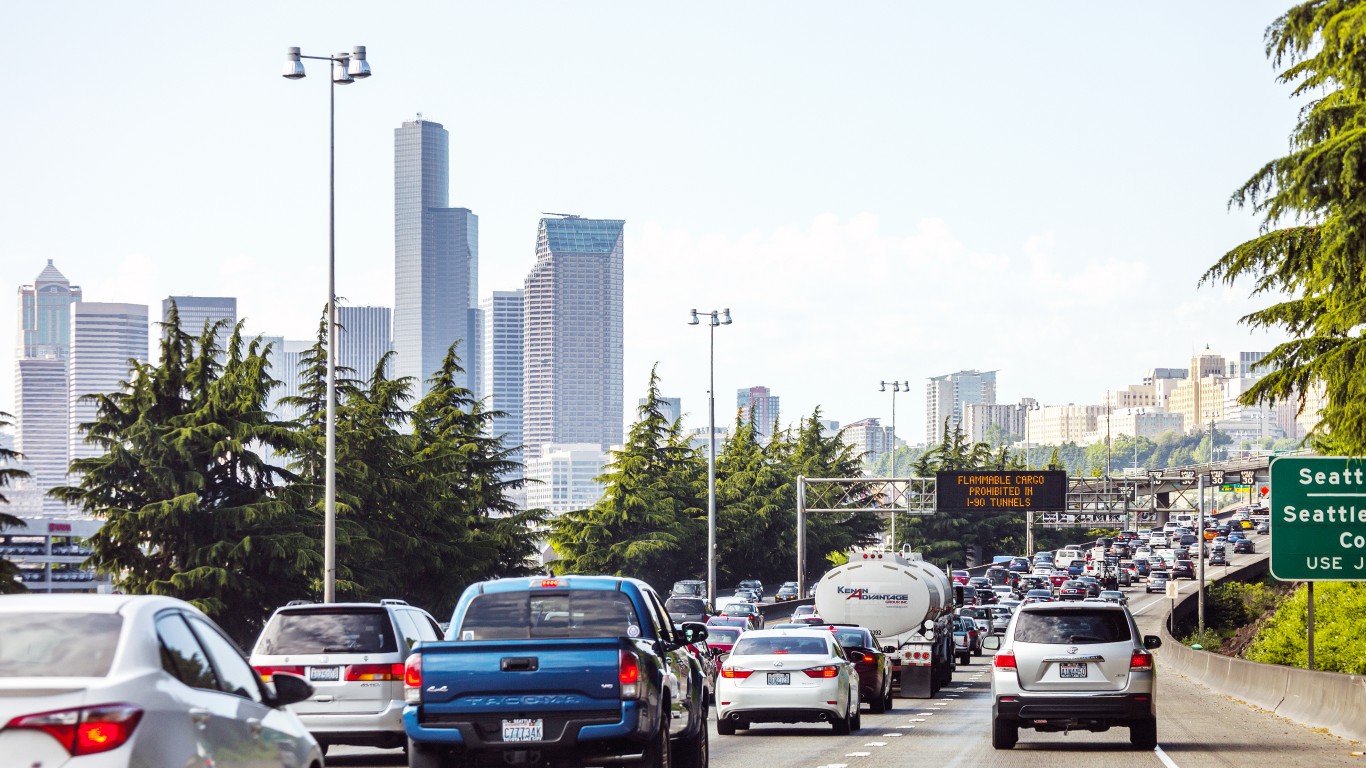
15. Seattle, WA
> Avg. hours lost to traffic per driver, 2020: 25 hours
> Cost of traffic per driver: $366
> Total traffic cost by city: $600 million
[in-text-ad]

14. Portland, OR
> Avg. hours lost to traffic per driver, 2020: 27 hours
> Cost of traffic per driver: $403
> Total traffic cost by city: $400 million
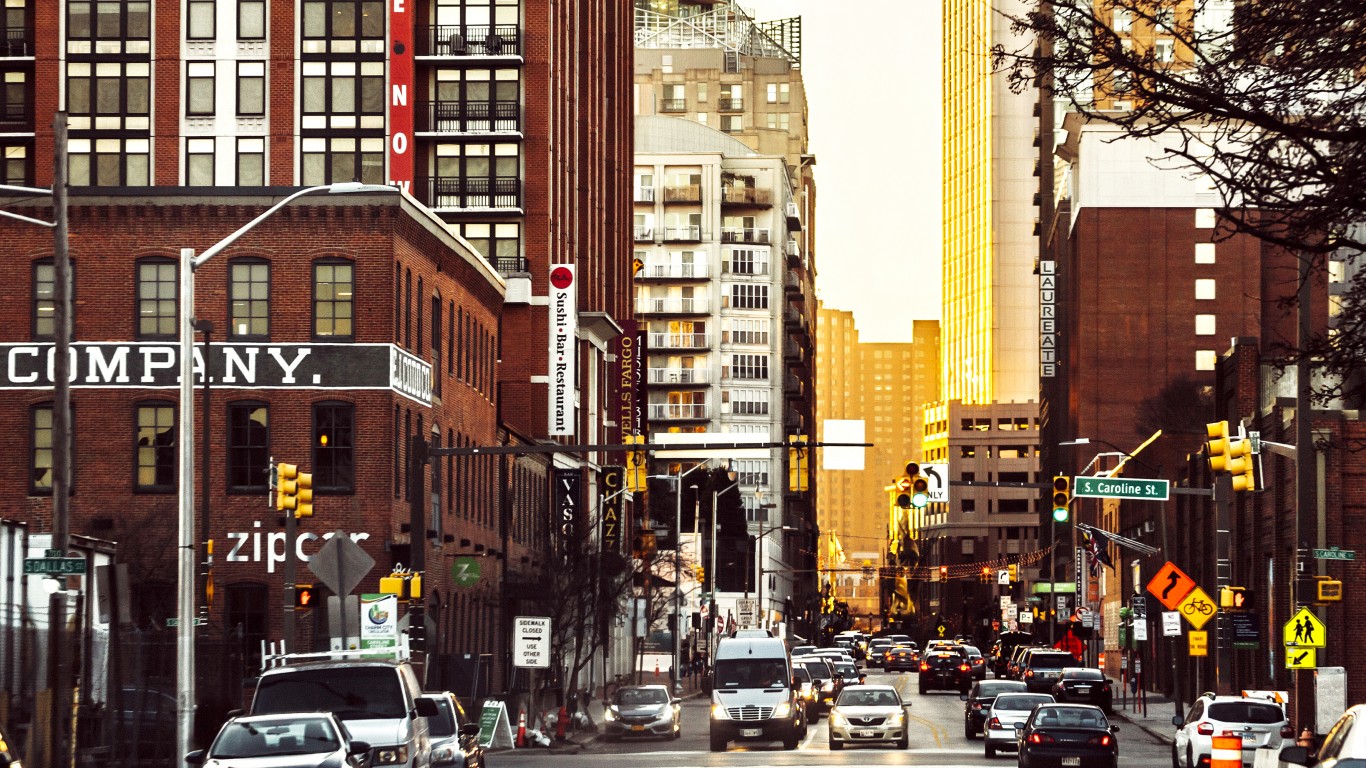
13. Baltimore, MD
> Avg. hours lost to traffic per driver, 2020: 27 hours
> Cost of traffic per driver: $402
> Total traffic cost by city: $500 million
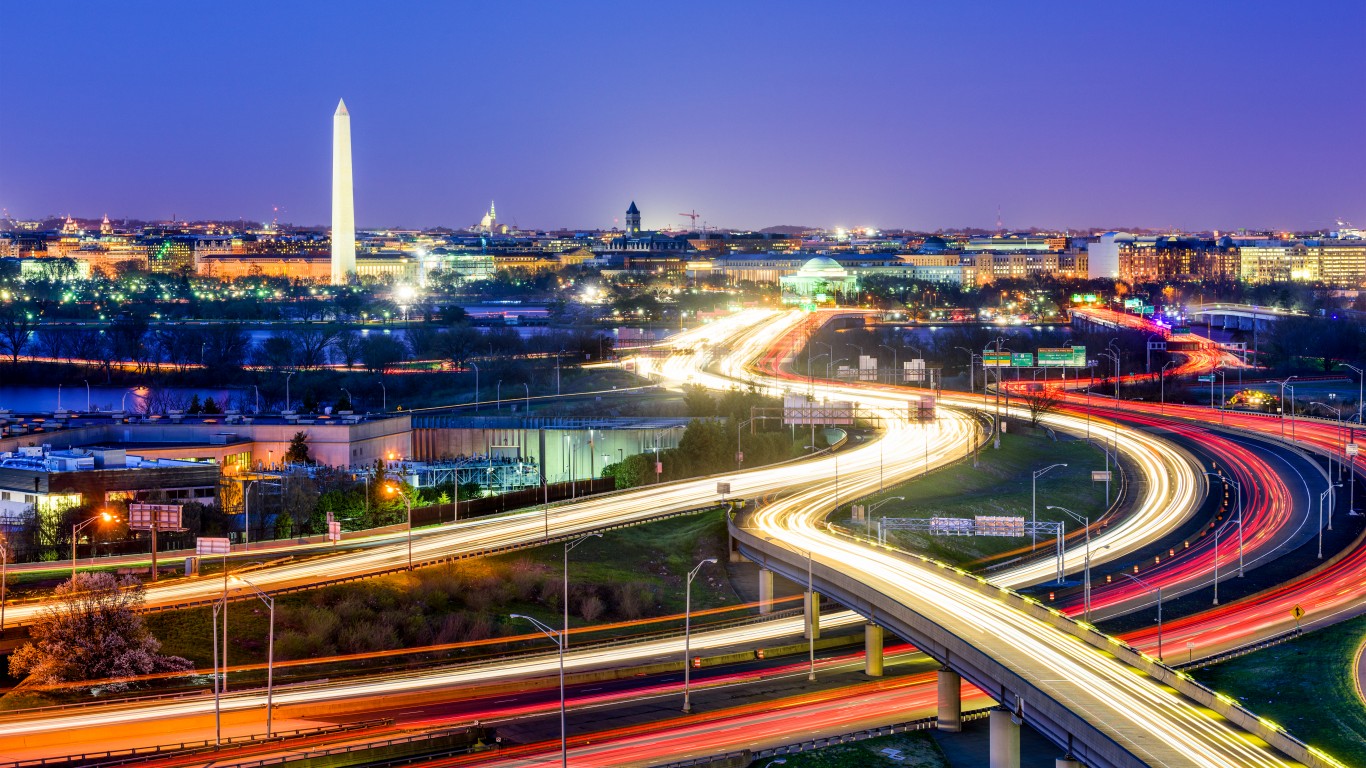
12. Washington, DC
> Avg. hours lost to traffic per driver, 2020: 29 hours
> Cost of traffic per driver: $427
> Total traffic cost by city: $1.1 billion
[in-text-ad-2]
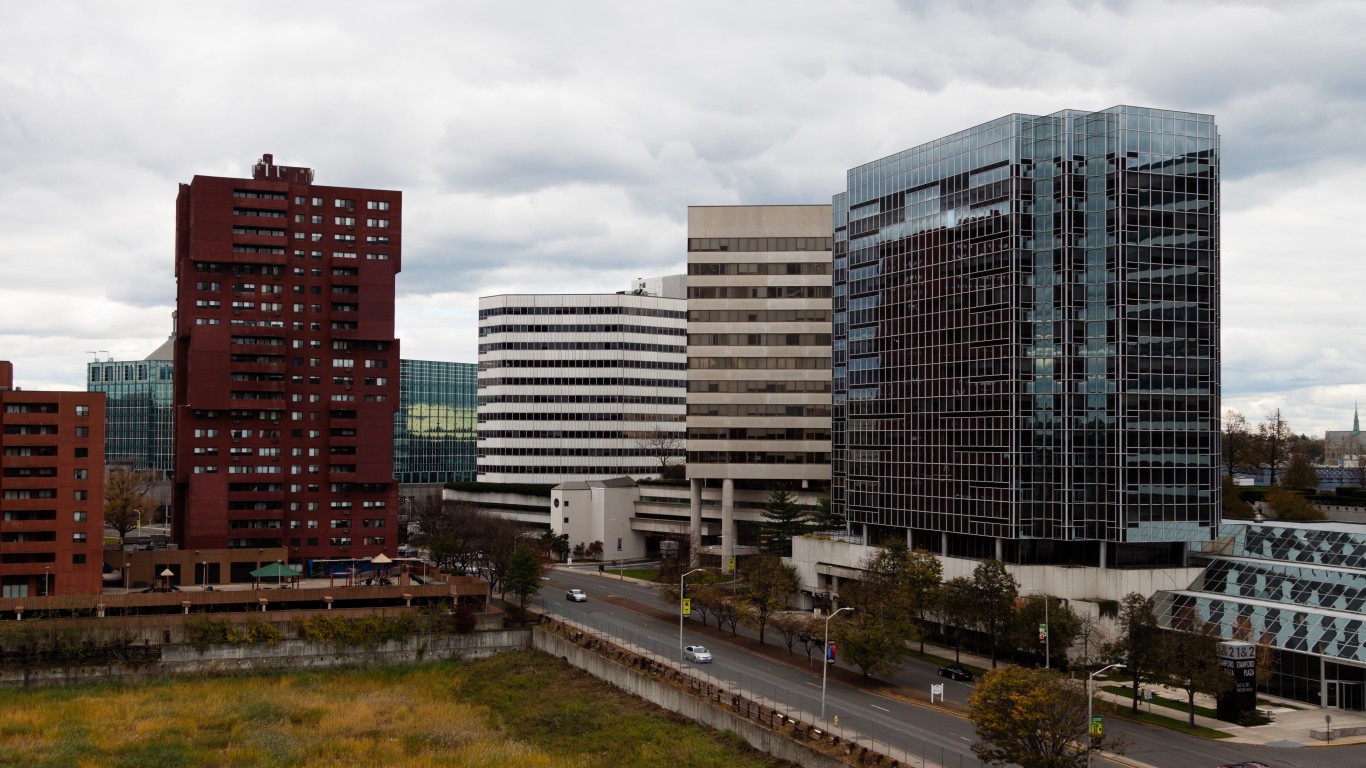
11. Stamford, CT
> Avg. hours lost to traffic per driver, 2020: 38 hours
> Cost of traffic per driver: $564
> Total traffic cost by city: $200 million
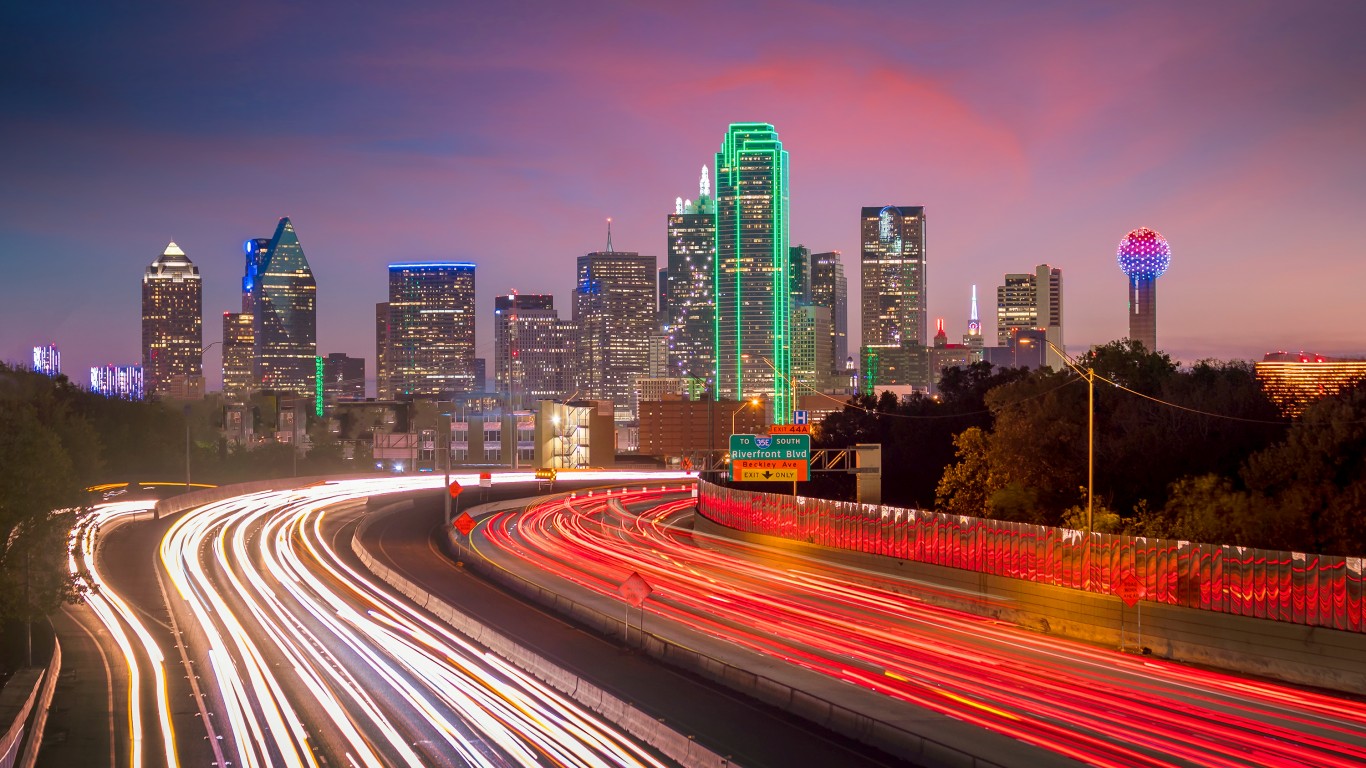
10. Dallas, TX
> Avg. hours lost to traffic per driver, 2020: 34 hours
> Cost of traffic per driver: $503
> Total traffic cost by city: $1.6 billion
[in-text-ad]
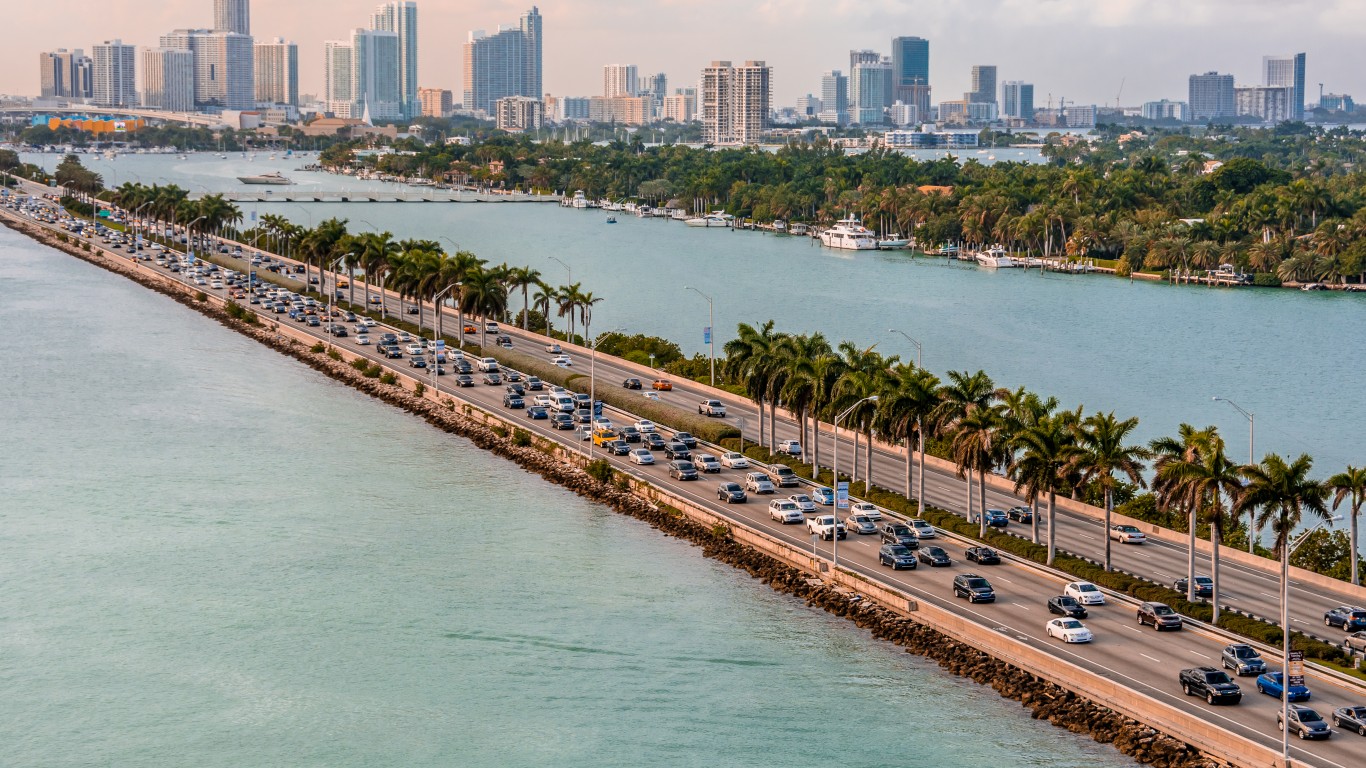
9. Miami, FL
> Avg. hours lost to traffic per driver, 2020: 35 hours
> Cost of traffic per driver: $512
> Total traffic cost by city: $1.3 billion
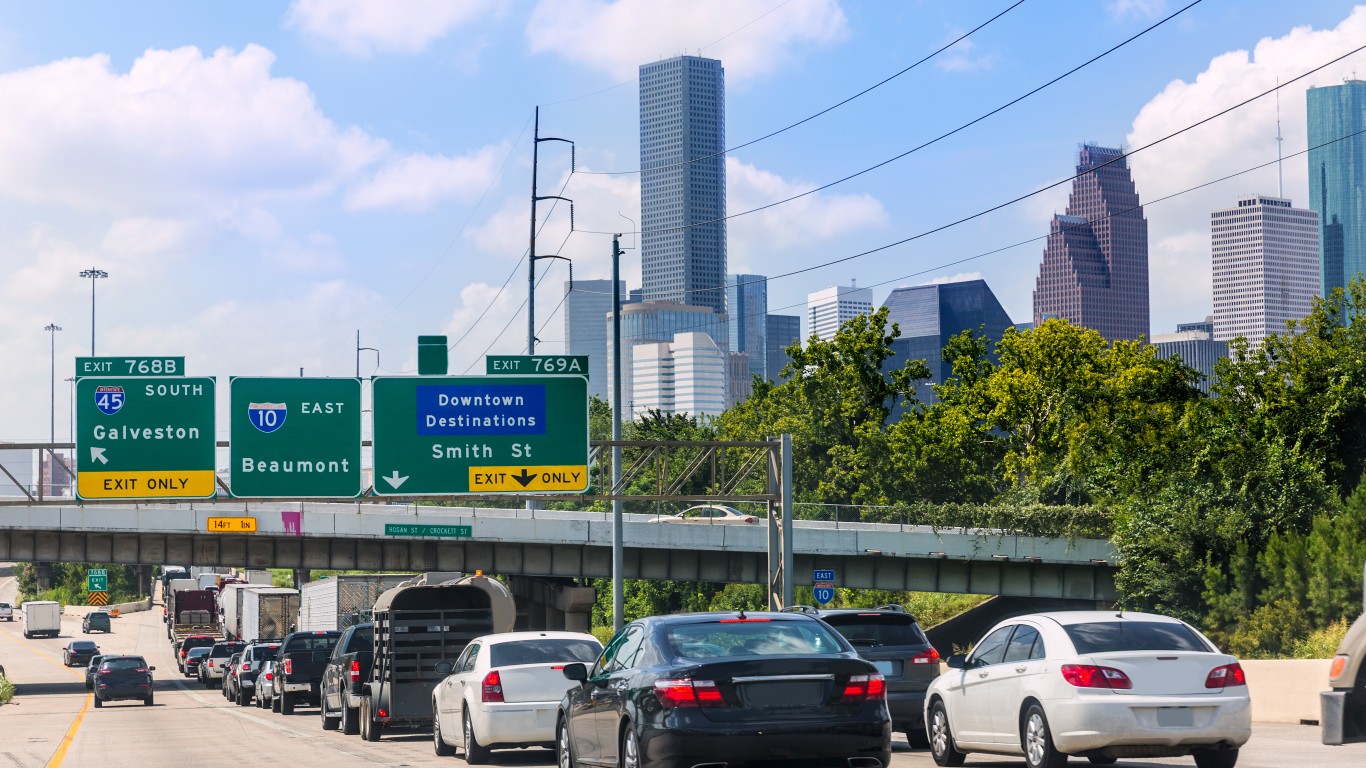
8. Houston, TX
> Avg. hours lost to traffic per driver, 2020: 35 hours
> Cost of traffic per driver: $523
> Total traffic cost by city: $1.5 billion
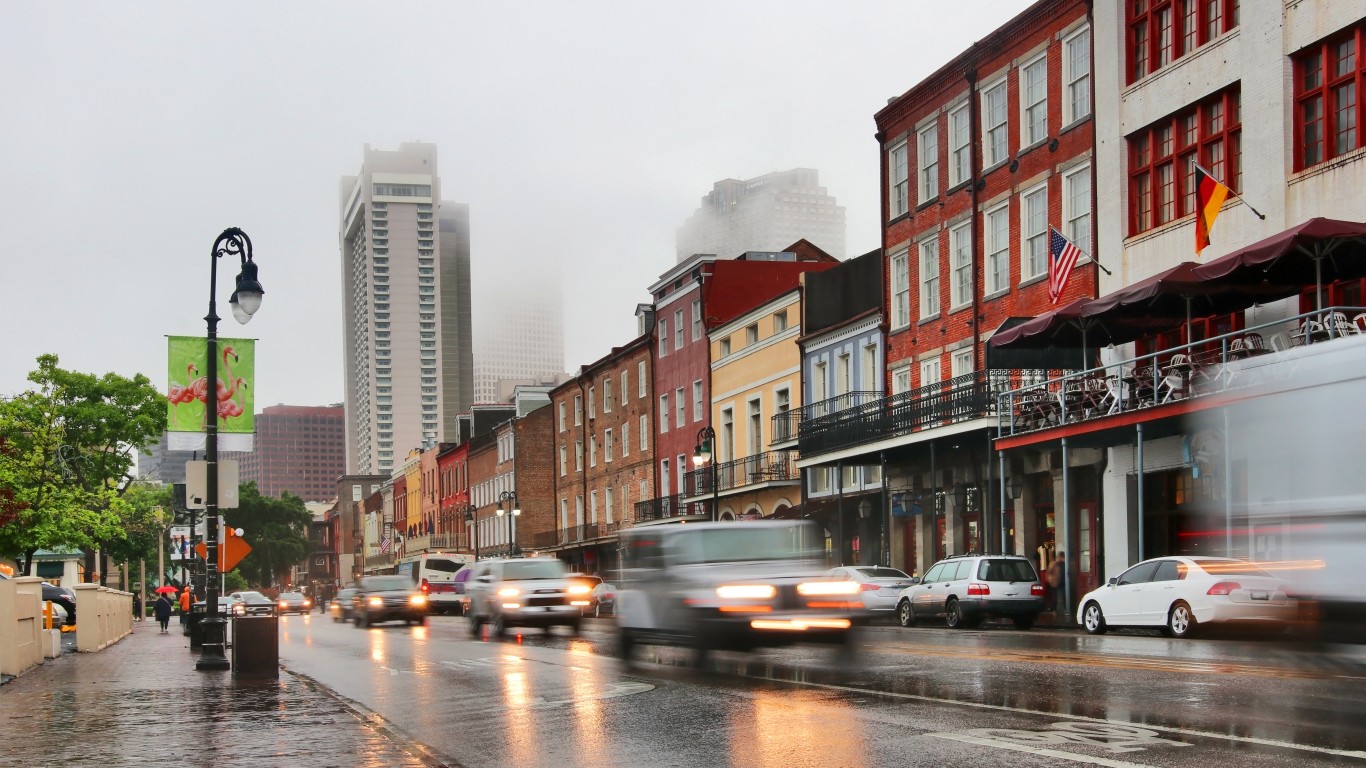
7. New Orleans, LA
> Avg. hours lost to traffic per driver, 2020: 42 hours
> Cost of traffic per driver: $617
> Total traffic cost by city: $300 million
[in-text-ad-2]
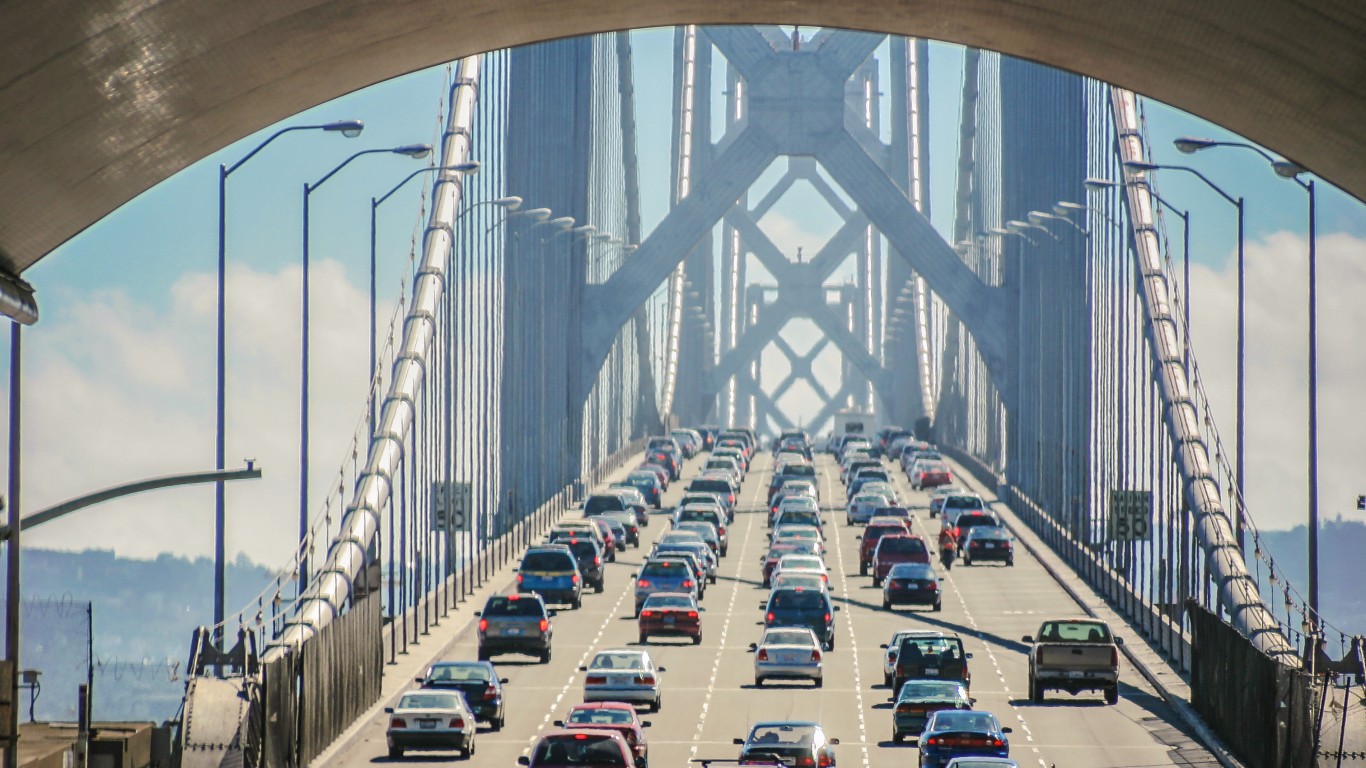
6. San Francisco, CA
> Avg. hours lost to traffic per driver, 2020: 47 hours
> Cost of traffic per driver: $697
> Total traffic cost by city: $1.1 billion
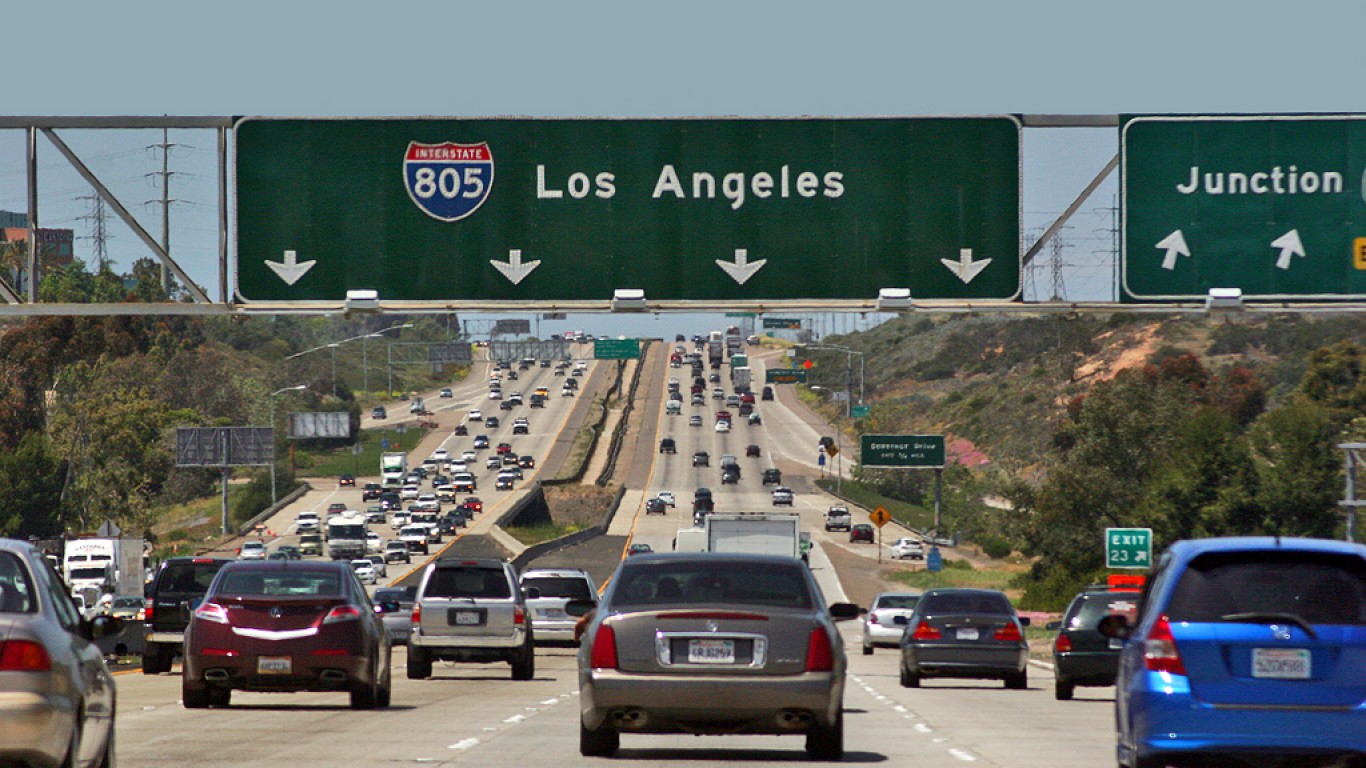
5. Los Angeles, CA
> Avg. hours lost to traffic per driver, 2020: 45 hours
> Cost of traffic per driver: $664
> Total traffic cost by city: $3.6 billion
[in-text-ad]
4. Boston, MA
> Avg. hours lost to traffic per driver, 2020: 48 hours
> Cost of traffic per driver: $711
> Total traffic cost by city: $1.4 billion
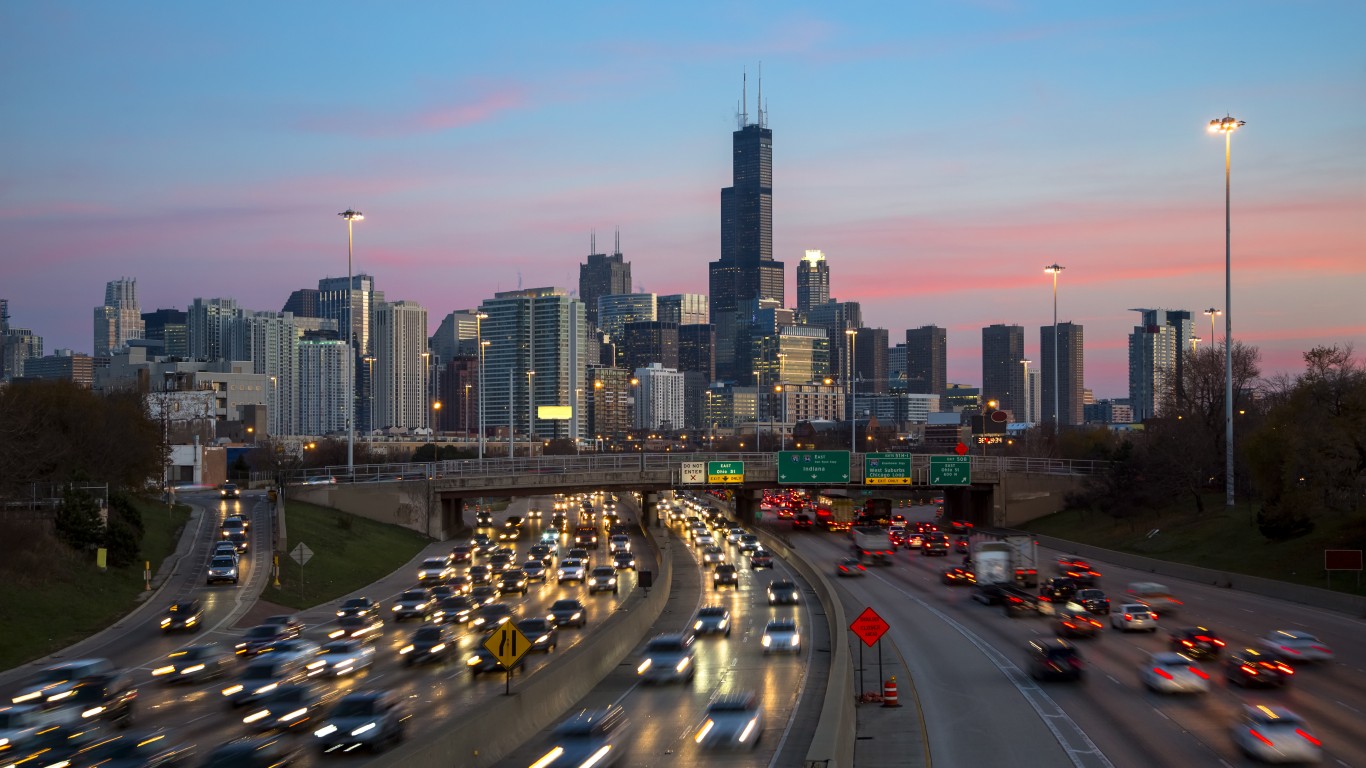
3. Chicago, IL
> Avg. hours lost to traffic per driver, 2020: 86 hours
> Cost of traffic per driver: $1,279
> Total traffic cost by city: $4.6 billion
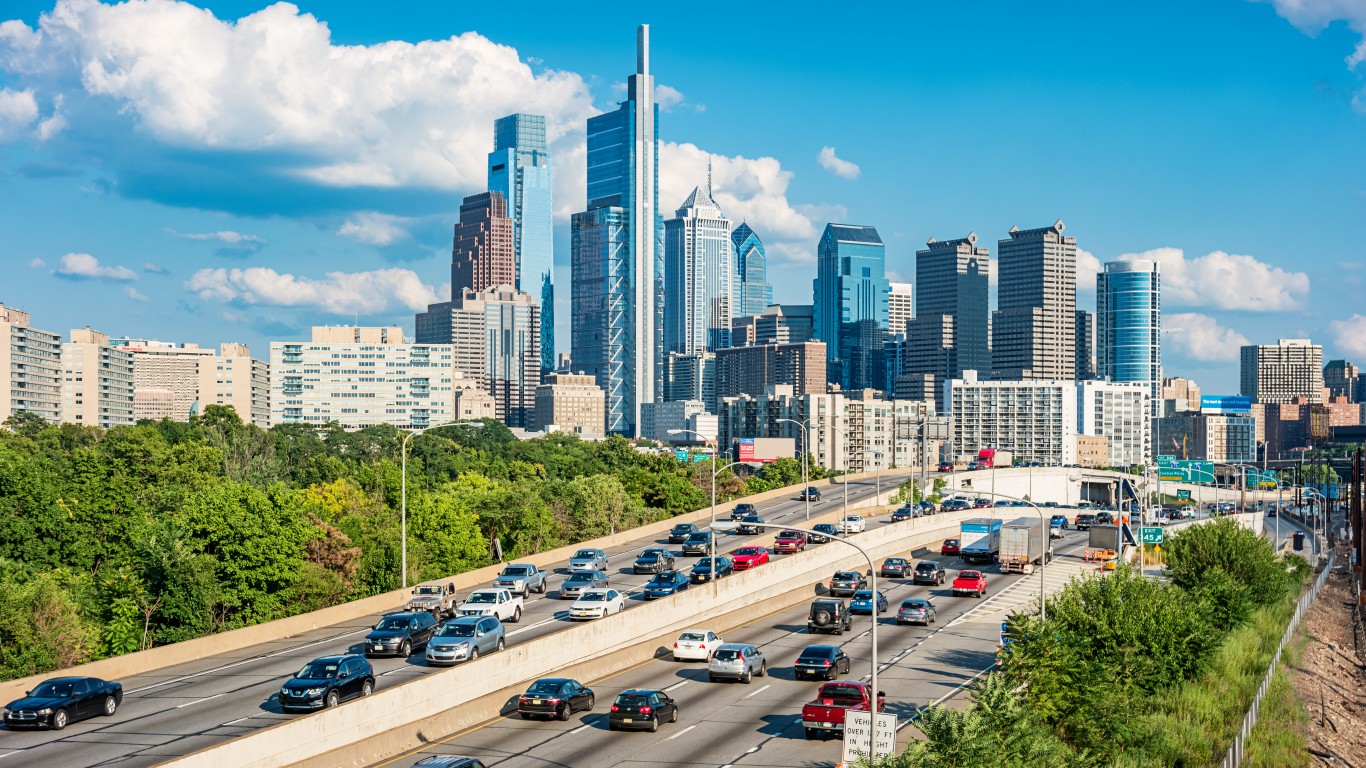
2. Philadelphia, PA
> Avg. hours lost to traffic per driver, 2020: 94 hours
> Cost of traffic per driver: $1,388
> Total traffic cost by city: $3.3 billion
[in-text-ad-2]
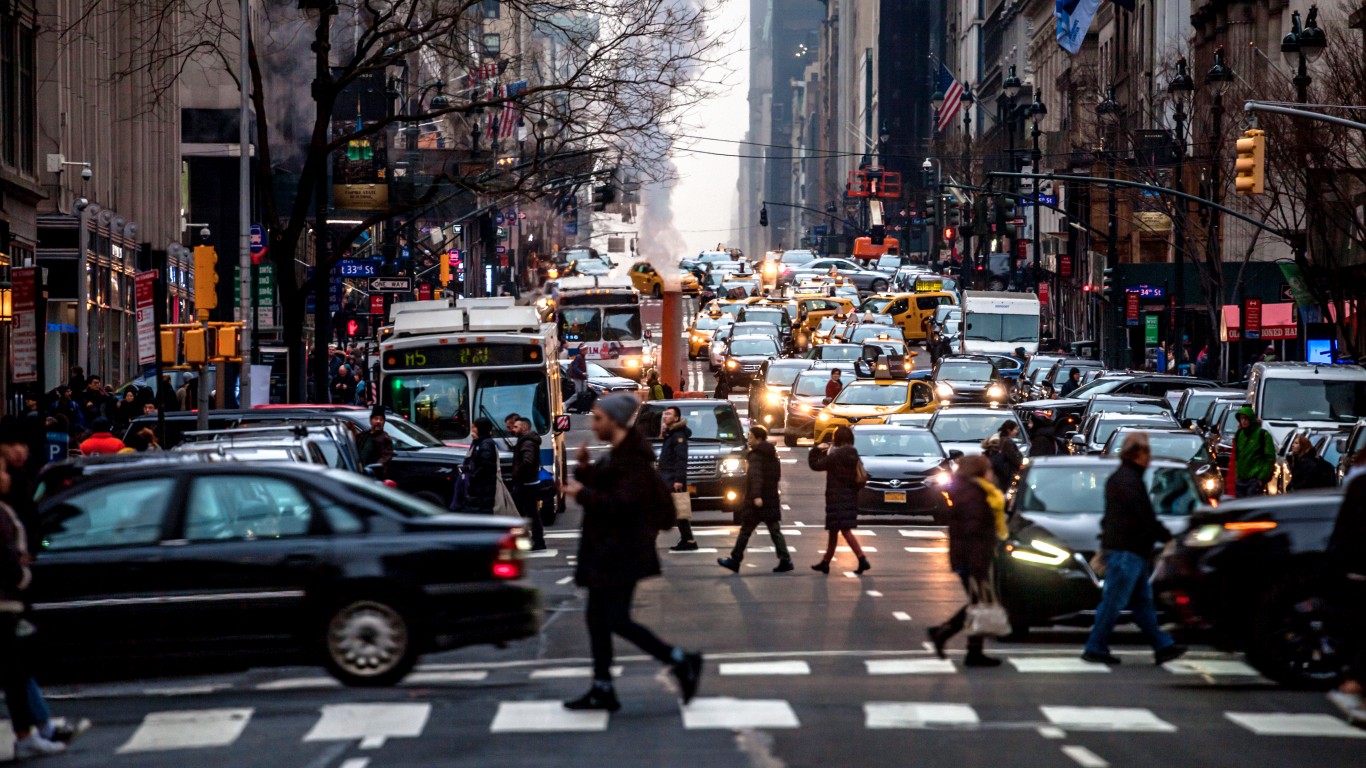
1. New York City, NY
> Avg. hours lost to traffic per driver, 2020: 100 hours
> Cost of traffic per driver: $1,486
> Total traffic cost by city: $7.7 billion
Cash Back Credit Cards Have Never Been This Good
Credit card companies are at war, handing out free rewards and benefits to win the best customers. A good cash back card can be worth thousands of dollars a year in free money, not to mention other perks like travel, insurance, and access to fancy lounges. See our top picks for the best credit cards today. You won’t want to miss some of these offers.
Flywheel Publishing has partnered with CardRatings for our coverage of credit card products. Flywheel Publishing and CardRatings may receive a commission from card issuers.
Thank you for reading! Have some feedback for us?
Contact the 24/7 Wall St. editorial team.
 24/7 Wall St.
24/7 Wall St.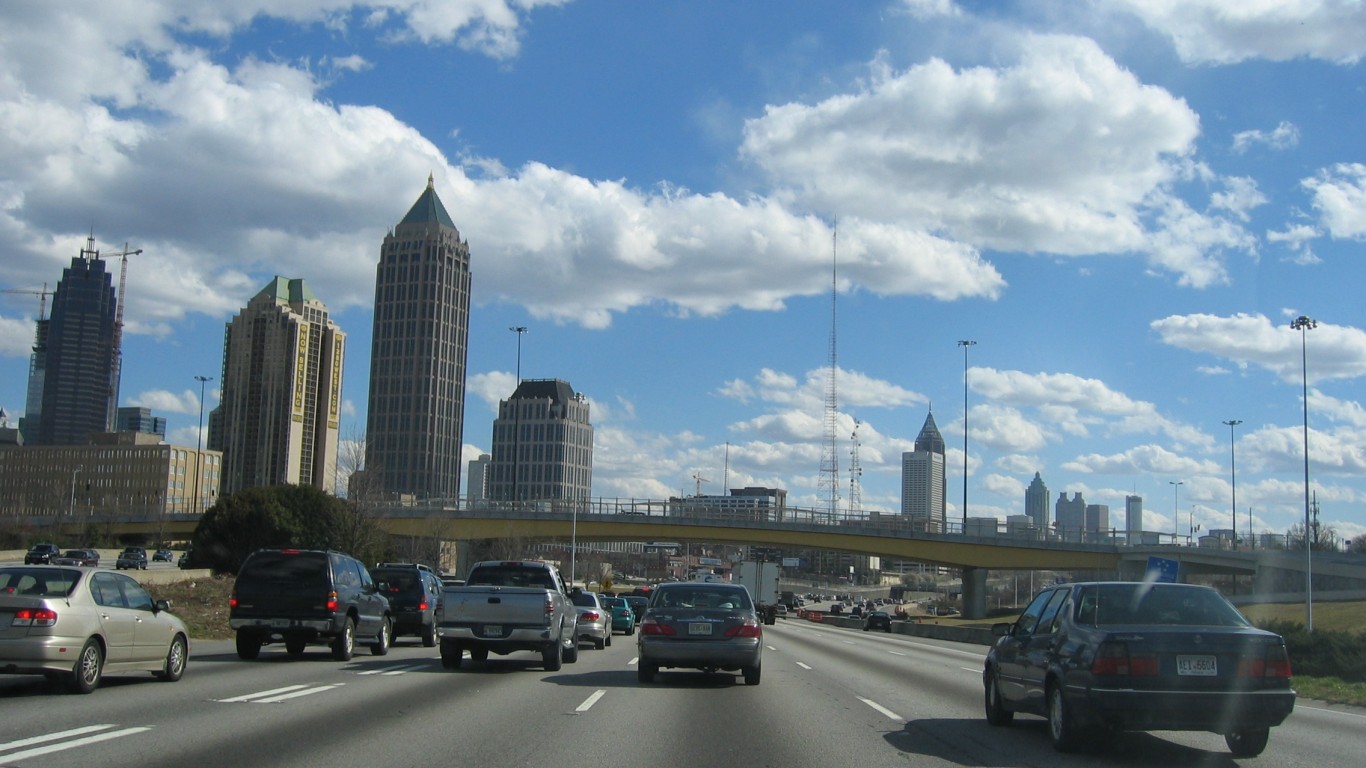
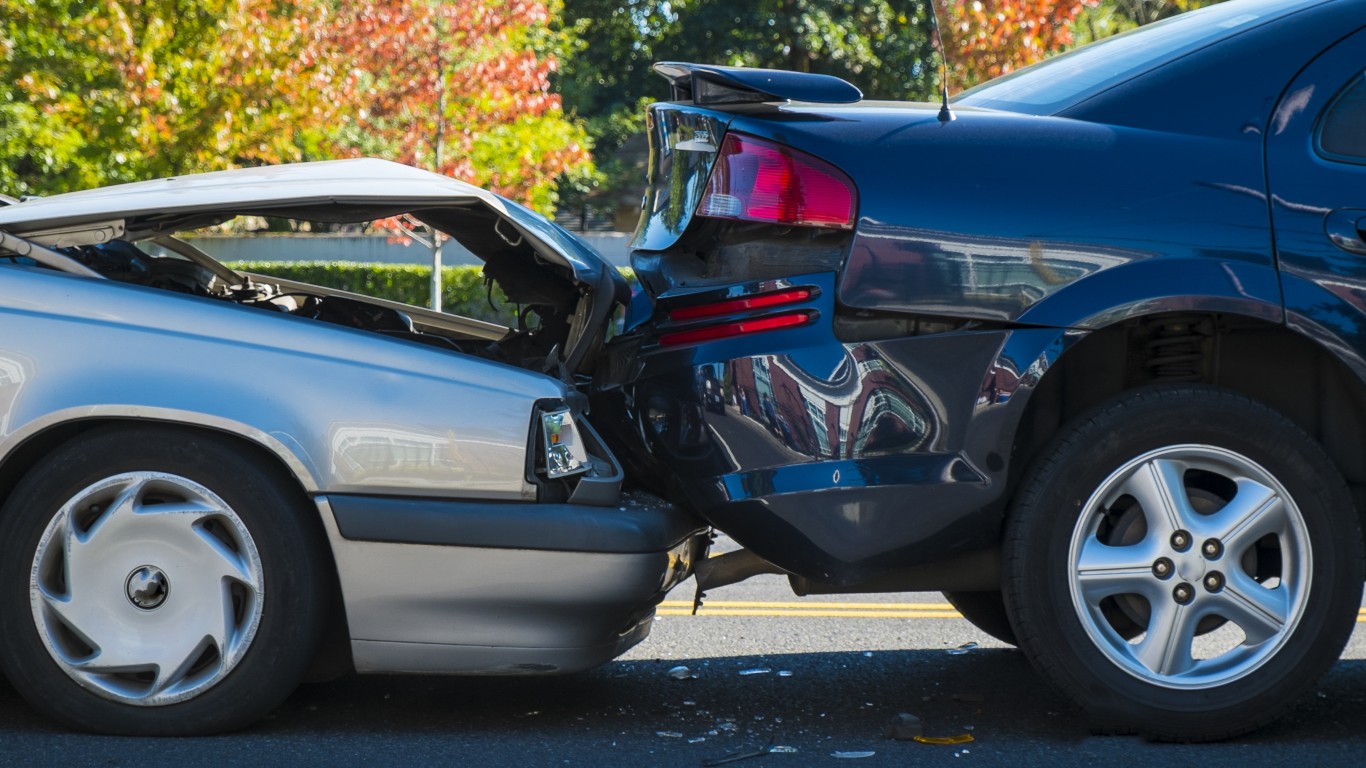 24/7 Wall St.
24/7 Wall St. 24/7 Wall St.
24/7 Wall St.